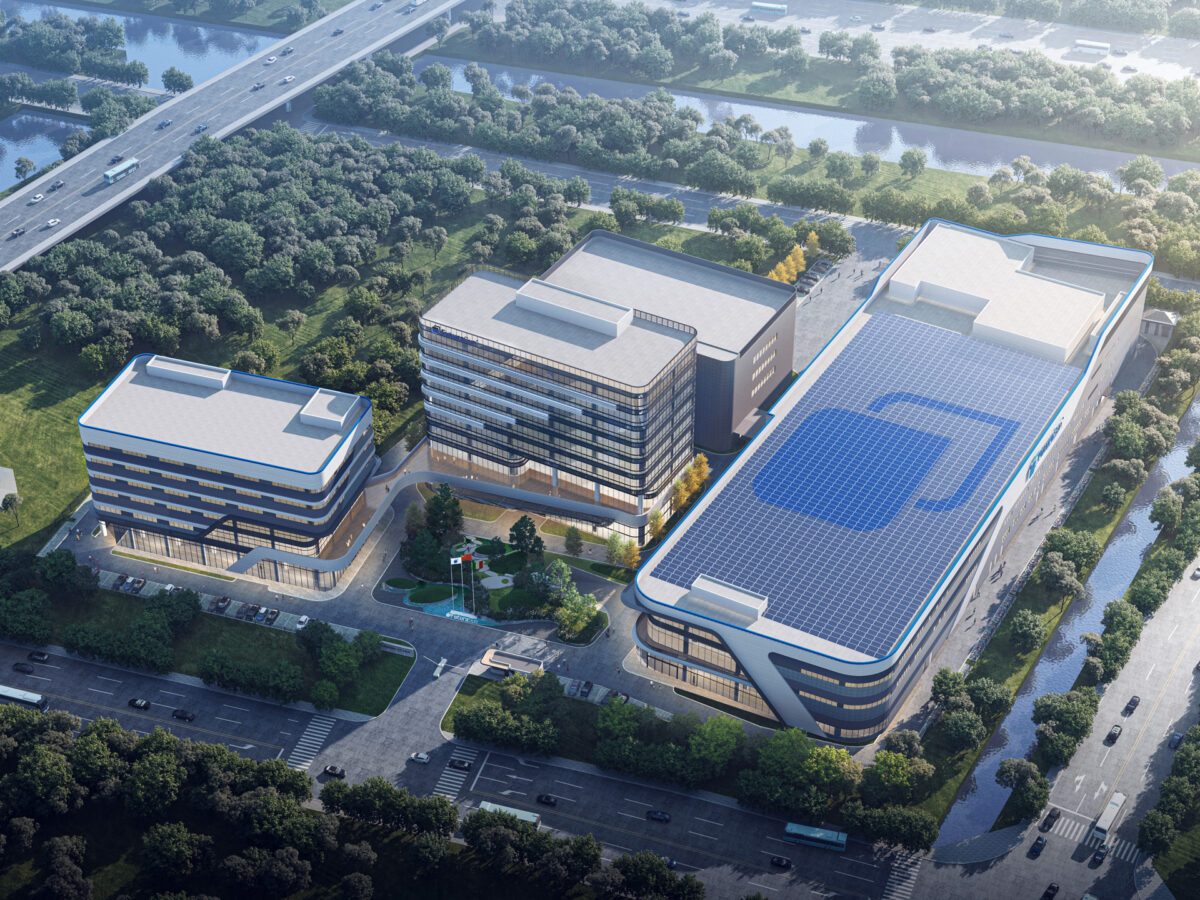Italian module manufacturer Futurasun broke ground on its new 2 GW back contact PV module factory that includes its Asian headquarters and an R&D center in Suzhou, China.
Three months earlier it began construction of a 12 GW TOPCon cell manufacturing plant in Huai’an, Jiangsu province. This factory was originally planned to have a capacity of 10 GW.
Futurasun CEO, Alessandro Barin, told pv magazine that the higher nameplate capacity for cell production is the result of two elements, specifically the “untapped potential for technological advancements in current production equipment” and the prospect of integrating “two additional production lines, strategically enhancing the original project blueprint”.
“The announcement was based on the projected efficiency of the cells, which increased in the meantime. There will be two identical 6 GW plants side by side, each with ten lines of 600 MW,” Barin stated.
Civil works have been completed with the next major works commencing after the Chinese New Year, which is in mid-February 2024. “The teams in China are very good at scaling up. Building large-scale manufacturing is their strength,” said Barin.
Popular content
When asked about progress on its €25 million ($26.4 million) plan for a 2 GW European module factory in Cittadella, Italy, announced early last year, Barin indicated the project is still being considered.
“We bought the land in Italy. The costs of going to the next step, however, are discouraging. No state support from Italy or Europe is evident. We are doing the homework, feasibility studies and preparing to apply for Innovation Fund, but it is a complicated process, and costly for a privately-owned company,” he said, adding that he is more optimistic about doing R&D in Italy.
“I could see building an R&D hub in Rome, leveraging the Solertix acquisition to be able to attract talents from around the world,” said Barin, referring to Futurasun’s June acquisition of Rome-based Solertix, a perovskite solar cell startup that was spun out of the University of Rome Tor Vergata.
“We can do a lot to build up intellectual property around cells, modules, inverters, with the industrial-scale manufacturing in China,” he also stated.
This content is protected by copyright and may not be reused. If you want to cooperate with us and would like to reuse some of our content, please contact: editors@pv-magazine.com.


By submitting this form you agree to pv magazine using your data for the purposes of publishing your comment.
Your personal data will only be disclosed or otherwise transmitted to third parties for the purposes of spam filtering or if this is necessary for technical maintenance of the website. Any other transfer to third parties will not take place unless this is justified on the basis of applicable data protection regulations or if pv magazine is legally obliged to do so.
You may revoke this consent at any time with effect for the future, in which case your personal data will be deleted immediately. Otherwise, your data will be deleted if pv magazine has processed your request or the purpose of data storage is fulfilled.
Further information on data privacy can be found in our Data Protection Policy.